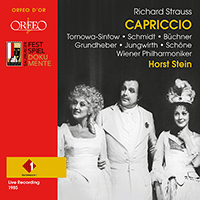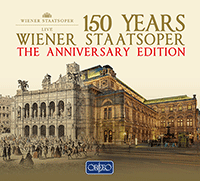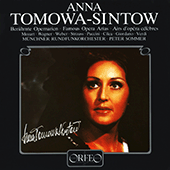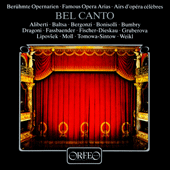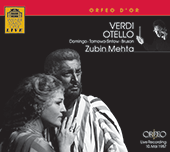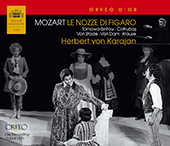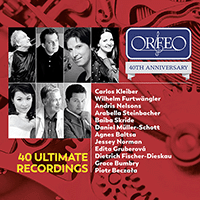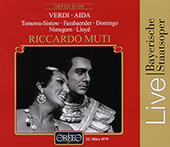Anna Tomowa-Sintow
When very young, Tomowa-Sintow portrayed Madama Butterfly’s child at the Stara Zagora Opera, where her mother sang as a member of the chorus. Having begun studying the piano when she was six years old, at sixteen she won a national singing competition and went on to study singing at the Sofia Conservatory with Georgi Zlatev Tcherkin and Katia Spiridonowa, graduating with diplomas in voice and piano: for her final examination she made her stage debut as Tatyana / Eugene Onegin.
Tomowa-Sintow then joined the Leipzig Opera in 1967, making her debut in the company’s Opera Studio as Abigaille / Nabucco. At Leipzig she studied many roles with the company’s general music director, Paul Schmitz, who had worked with Richard Strauss. Her parts at Leipzig included the title roles in Madama Butterfly, Manon Lescaut and Arabella, as well as Violetta / La traviata, Leonora / Il trovatore, Desdemona / Otello and Donna Anna / Don Giovanni. She moved to the Berlin State Opera (East Germany) in 1972, adding to her stage repertoire the Countess / Le nozze di Figaro, Fiordiligi / Così fan tutte, Tatyana, Elisabeth / Tannhäuser, Elsa / Lohengrin, the Marschallin / Der Rosenkavalier and the title parts in Ariadne auf Naxos, Aida and Tosca. Remarkably, she was made a Kammersängerin after only her first year with this company.
At the 1973 Salzburg Festival Tomowa-Sintow took part in the first performance of Carl Orff’s De temporum fine comoedia, having successfully auditioned for this with Herbert von Karajan. The event attracted international attention and henceforth, for the rest of Karajan’s life, the two musicians were to work closely together. Between 1975 and 1978 Tomowa-Sintow sang the Heavenly Voice in Don Carlo at the Salzburg Festival; at the 1976 Salzburg Easter Festival she portrayed Elsa while at the summer Festival that year she appeared as the Figaro Countess, which she repeated in 1980. Later Salzburg roles included Donna Anna (1977–1978, 1987–1988), Ariadne (1982), the Marschallin (1983–1984), the Countess / Capriccio (1985–1986, 1988) and Tosca (1989), as well as several song recitals.
Appearances with the San Francisco Opera as Donna Anna marked Tomowa-Sintow’s debut in the USA in 1974. During the following year she made her debut at the Royal Opera House, London as Fiordiligi, returning frequently to Covent Garden to sing Elsa (1977), Maddalena / Andrea Chénier and the Figaro Countess (both 1985), Ariadne, (1987), Jaroslavna / Prince Igor (1990), the Empress / Die Frau ohne Schatten (1992), Tosca (1993) and the Marschallin (1995 and 2000).
A long association with the Vienna State Opera began in 1977 when Tomowa-Sintow made her debut there as the Figaro Countess, going on to sing most of her repertoire including Leonora / La forza del destino and being made a Kammersängerin. She also sang frequently with the Bavarian State Opera, Munich, where her notable roles included Arabella, which she sang with this company on tour in Japan in 1988.
She first sang with the Metropolitan Opera, New York in 1978 as Donna Anna and later as the Marschallin (1979–1980), Elsa, Amelia / Simon Boccanegra (both 1984), Aida (1986), Violetta (1987) and Tosca (1993). Her final Met appearance was as the Marschallin in 1993, the year in which the fine recording by Decca of Korngold’s Das Wunder der Heliane, in which she sang the title role, was released.
Later debuts included the Chicago Lyric Opera in 1980 as Donna Anna; La Scala, Milan in 1982 as Elsa, and the Grand Opera in Paris, where she sang the title part in Richard Strauss’s Die aegyptische Helena in concert in 1993 at the Salle Pleyel. Later roles included, at Zürich, the title part in Norma (1995) and Sieglinde / Die Walküre (1997), and at Barcelona the title role in Strauss’s Salome in concert (1998), followed by the title part in Turandot (1999). She continued to be active throughout the first decade of the new millennium, appearing frequently in Japan in both opera and concert, and singing with the Berlin State Opera as late as 2013. In addition she began to give master-classes and to sit on the juries of several singing competitions.
Tomowa-Sintow possessed a powerful but beautifully-formed and controlled soprano voice, which she used with superb musicianship. She always looked extremely elegant and regal on stage, commanding attention. Although closely identified with the Mozartian and German repertoires, she was also an excellent interpreter of Italian opera.
© Naxos Rights International Ltd. — David Patmore (A–Z of Singers, Naxos 8.558097-100).








